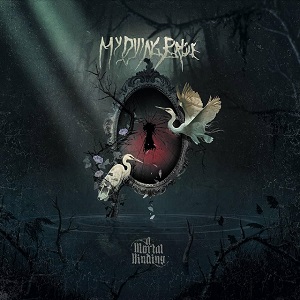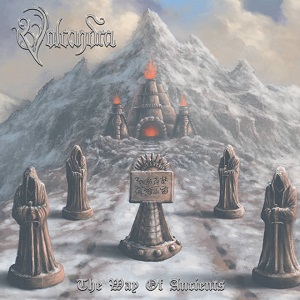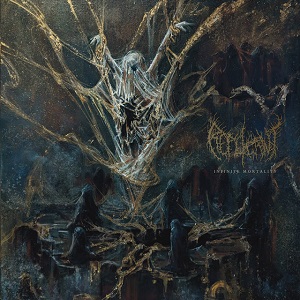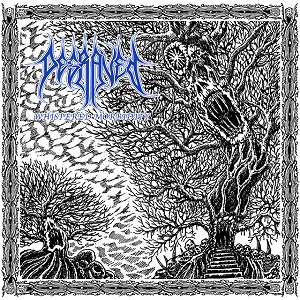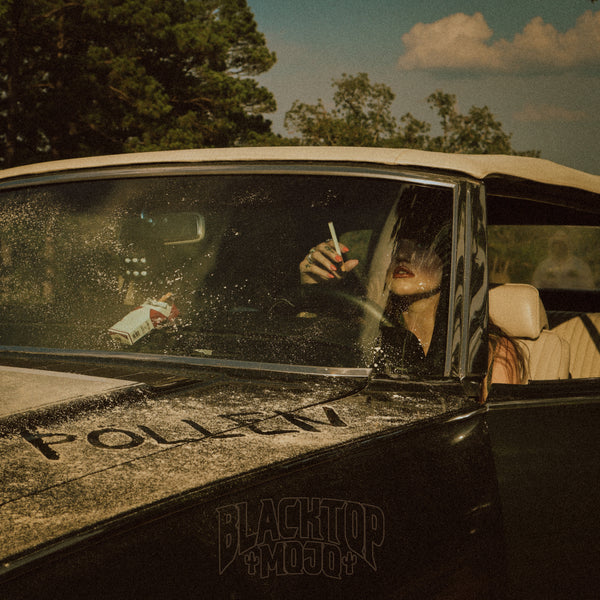IN FLAMES - Turning On The Charm
September 12, 2014, 9 years ago
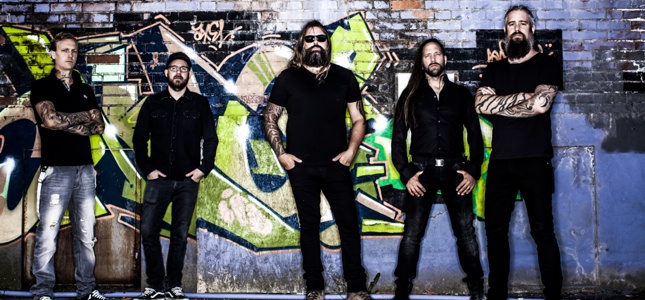
Reciprocity, in social psychology, is defined as "responding to a positive action with another positive action, rewarding kind actions". As a social construct, reciprocity means that, in response to friendly actions, people are frequently much nicer and much more cooperative than predicted by the self-interest model; conversely, in response to hostile actions, referred to as negative-reciprocity, people are frequently much more nasty and even brutal.
We all experience this negative-reciprocity on a daily basis, simply by surfing the maelstrom of negativity that is, far too often, life on the interwebs. A visit to your favorite site, preferably one that has a public forum or allows user comments - be that Facebook, a metal site (hopefully it's this one right here!), a video game site, a world news site, maybe a much-beloved porn site - can become breeding grounds of negativity. This can include trolling, flame wars, and cyber-bullying. With the (perceived) anonymity of the internet used as a defensive cyber wall, people now have free reign to spew their shit at one's discretion. This devil-may-care, no-consequence attitude can be detrimental to those with their name in lights; after all, negativity begets negativity, and no one person - in this case, band - is immune to the snowball-like effect that can be created through these online campaigns of shit-talking.
So, what's all this have to do with In Flames? Well, prior to 2002, these melodeath pioneers could do no wrong. Venerable albums such as the late-century tetrad of The Jester Race, Whoracle, Colony, and Clayman were largely responsible for the prolific, all-consuming beast that grew into the well-oiled machine that is now melodic death metal.
At this point, in their still-early career, In Flames had become untouchable; a tenacious, unified, myth-like cult of personality followed the guys wherever they went, and we, the fans and media, those who praised their every move, were largely responsible for creating this larger-than-life persona. With this kind of fan and media instigated pressure, the internal creative processes that tend to drive a band forward can begin to work counter-intuitively to the progression of their art. The pressure to follow-up - or even surpass successful releases - can seem insurmountable, even for the most seemingly-impenetrable of bands. This is where things begin to unravel.

The beginning of the third millennium saw In Flames break away from the steel which they had forged. Their next album, Reroute To Remain (often referred to by disgruntled fans as the band's very own "Black Album"), was the straw that broke the proverbial camel's metal back. The deluge of negativity that has followed the band over the intervening years, present-day included, would have seen the end of a lesser band.
So, what have we learned from reciprocity, and the lack thereof in today's connected world? Well, we can now attempt to put into context, for better or for worse, the not-so-favorable trajectory of In Flames' relationship with their old-school fans and the media outlets who covered them. Do we as connoisseurs of this stuff need to be more aware of our social responsibility, accountability, and reciprocity when talking shit? Do we understand the repercussions that our words and negative actions can have on the lives, careers, and well-being of others? Perhaps, just perhaps, we have a responsibility in all this. But, I suppose it's just easier to blame the band.
Anyway, by no means is this a lecture, as there are those of us right here at BraveWords who have fallen victim to negative-reciprocity when covering In Flames. There was once a long, mutually-beneficial relationship between the band and BW. In fact, we were one of the first in North America to cover the band - on a very regular basis. Even so, like so many of our peers, we were quick to judge the band when it didn't fit our ideal - our expectation - of what they should or should not be. In hindsight, the arrogance - and ignorance - was palpable.
Yeah, I know, I'm treading into hippy-dippy territory with all of this; but, quite honestly, In Flames do not exist to appease our every want and desire. First-and-foremost, they have a responsibility to themselves, one which sees them fulfilling the artistic needs/wants of each and every member. If we don't like it, then perhaps we should move on with mouths-zipped. What is the point of shit-talking? What does it accomplish? As the old adage goes: loose lips sink ships. In this case, have loose lips sunk a once-mighty, molten, metallic ship? Me thinks not.
The band have certainly weathered this decade-long shit-storm just fine, regardless of the absence of reciprocity, and have released an album that challenges even the most ardent of naysayers. I mean, come on, even if you can't stand the band it's obvious it doesn't matter - for every one of you they lose, they gain ten-fold.
"Well, to start, the relationship between a band and their fans is very complicated," explains long-time percussionist, Daniel Svensson. "We as a band produce a very abstract product in a way. Who has the right to judge whether it's a product of high or low quality? If you as a customer go shopping for groceries you don’t expect to find rotten tomatoes or bananas in the produce department. Neither do you expect to find your house painted in black when you paid a professional painter to paint it white. As a customer you have the right to demand that the products or services you pay for meets a certain standard. This can't really be applied to music or other artistic expressions. With this in mind, I think bands and artists sometimes get exposed to unproportional negativity from fans on the internet, even though I totally understand that people can get disappointed with us. Overall, though, I would say the relationship between us and our fans is better now than it's been in a long time. I think we gained a serious amount of respect from the fans when they realized that we didn't take any notice of all the bullshitting that took place after the release of the album Reroute To Remain and never compromised with our own vision and will. We made sure that no matter how much people screamed, we still go our own way - you can't change us in the way you want. We have a lot of fans today that take a stand against the loudest of haters and we are grateful for all the loyal fans we gained throughout the years."
On that note, let's talk damage control. Prior to this little thing called the internet, bands were relatively immune to full-on campaigns of hate from fans and media alike. The negative backlash to a not-so-well-received album was often waged, and relegated, to reader comment and review sections of magazines, with next to no ill-effects felt by the band (i.e. album sales). Has the inherent anonymity of the internet, and the lack of mano-a-mano dialogue, created a disconnect between the band and its fans? Is In Flames fighting a losing battle?
"There's no need for us to use damage control. I don’t think that this 'phenomena' hurts us that much," clarifies the drummer. "I hope, and think, that the internet has given us the chance to reach out to more people and gives us a way to promote ourselves in a way that wasn't possible before. The positive effects are much stronger than the negative ones. You have to accept the change and everything around and adapt to it. I think we have adapted well and that the internet helped us a lot."One listen to the new album, Siren Charms, raises many questions - questions about the relevancy of its sleek-yet-still-aggressive-pop-like-structured content. This isn't to say the music contained within suffers; quite the opposite, in fact. Quite honestly, I'm curious to know where the band feels that they fit in in this post-Jester Race world.
"These are things that I never really think about as it's not very interesting for me," emphatically states Daniel. "Do we want to fit in? I don´t know. We create music that we enjoy - that we enjoy to perform and that we can stand behind and be proud of. It’s up to other people to judge where we fit in. We don't take this into consideration while writing music since it might be repressive towards our creativity. We'd rather find new paths instead of follow others."There is no doubt that In Flames has fought their way to the top of their game through sheer innovation, talent, hard work, and creative vision. The early years saw a band who completely understood their audience and catered to that as best possible. That being said, there comes a time when every band steps out of their comfort zone in an attempt at maturing as songwriters. It can be argued that, along with maturing artistically, there is also some level of physical maturation - meaning that extreme bands simply burn out on the extremity. Often times, this is misconstrued by fans and media as a deliberate attempt at steering away from the genre/style they created, leaving behind everything that made them innovative in the first place. Examples of this range from Metallica, Opeth, Sepultura, and, of course, In Flames. The answer, when asked, always seems to be the same - with descriptors such as 'natural progression' and 'artistic freedom' being thrown around as defensive measures. More often than not, innovation is begot by innovation - meaning that innovative bands are not themselves immune to being influenced by innovation. Fans of early In Flames often cite the propagation/popularity of nu-metal as the deciding factor in In Flames' abrupt change in sound. Not a chance, as Daniel goes on to explain.

Siren Charms continues in the (now)time-honored tradition of albums released since Reroute To Remain, with catchy, alternative metal being the rule of the day. Has In Flames found its winning formula? Can we expect much deviation from this formula in the coming years?
"Well, our songwriting process is certainly not rocket science. We try to keep it simple by not adding too much into the songs," offers Daniel. "The melodies are the most important part and they will always be there. We have learned throughout the years that we have to keep in mind that the songs have to be presented live and sound as good as they do on the album. In the early years we sometimes added too many guitars and harmonies and that made the songs different when we performed them live. It's impossible to say today how we will sound in the future, but as I mentioned before the melodies are our trademark and they will always be there."Siren Charms, in an interesting and refreshing approach, takes the euro-death innovation of Colony and marries it with the butter-on-the-balls of Come Clarity. To be more specific, the epic melodeath of Colony is seamlessly fused with the balls-out, harmonious riffing found on Come Clarity. Most interestingly, and completely out of left-field, is the palpable sense of dread and anguish that underlies the whole of Siren Charms - it feels very dark, and very ominous. At the same time, expect your downtrodden spirit to be swiftly and suddenly ripped back into reality by a redemptive hand reaching into the dark, pulling your emo-drenched ass out into the light. This yin vs. yang vibe is something new for this listener, and a welcome reprieve from the static that too often permeates this genre.
"Yeah, the album definitely has a very melancholic feeling," agrees Svensson. "In my opinion, it's the darkest In Flames album to date. I can't really explain why, as we didn't have the intention to write a 'dark' album. I suppose there were many factors that multiplied and summed up to this vibe. Maybe spending six rainy weeks during the recording in Berlin in November and December, far away from our families and a 'normal' life, helped to create this vibe. It's the first time we recorded an album away from home, without the possibility to go leave during the process. We lived with this recording 24/7 during these weeks and had no other distractions whatsoever. You can say that we haven't been this 'intimate' with the recording of an album before. These are definitely aspects that shaped the album in this certain way."

